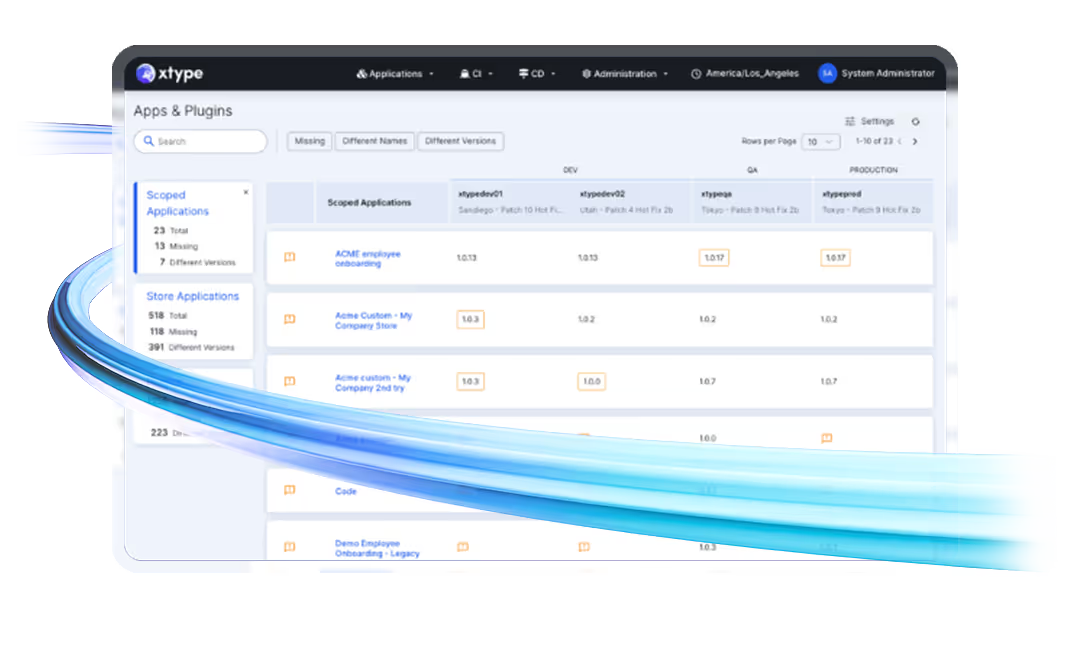Revolutionizing Finance with Low-Code Tools: ServiceNow's Success Stories

In the rapidly evolving world of finance, the introduction of low-code tools is revolutionizing productivity and efficiency. ServiceNow's recent blog post, "Low-Code Tools Boost Finance Productivity," highlights the transformative impact these tools have on the finance sector.
The blog post details how ServiceNow's CFO, Gina Mastantuono, has championed a formal citizen development program, empowering finance employees to create applications using no-code or low-code tools like ServiceNow App Engine Studio. This initiative has led to nearly 30 applications being developed or produced by 15% of ServiceNow's finance employees, all on the Now Platform.
The Rise of No-Code/Low-Code Development
In addition to low-code development, the finance sector is also seeing the emergence of no-code development tools. These tools allow non-technical users to create applications without writing any code at all. No-code development platforms are becoming increasingly popular thanks to their ease of use and the ability to create custom applications quickly.
The no-code movement is driven by the need for speed and agility in today's business environment. With competition increasing, organizations need to be able to innovate rapidly to stay ahead. No-code tools enable business users to create applications themselves without relying on IT, empowering them to bring their ideas to life quickly.
No-code/low-code development bridges the gap between business and IT, enabling better communication and collaboration. By giving business users the tools to create their own applications, IT teams can focus on more complex tasks, driving innovation and delivering more value to the organization.
As the finance sector evolves, no-code development will play an increasingly important role in driving innovation and productivity. Organizations that embrace this trend will be well-positioned to succeed in the rapidly changing business landscape.
The Transformative Impact of Low-Code Tools in Finance
The article showcases several success stories. For instance, Ejaz A., director of revenue management, developed a ticket intake form to streamline communication and manage thousands of queries efficiently. Padmavathi G., a cash collections manager, utilized a three-step wizard to automate the process of securing purchase order numbers, saving over $100 million per year and cutting down email correspondence time significantly.
Moreover, the blog post illustrates how low-code development tools have not only automated tedious tasks but also fostered deeper employee engagement. Mahesh Reddy M. from the workplace services team created an app to manage statutory license and compliance renewals, eliminating the risk of missed deadlines due to manual tracking.
Sandeep N., senior manager of payroll management, also benefited from these tools by developing an app that improved payroll health checks, providing real-time issues to leadership rather than relying on outdated email data.
The Broader Potential of Low-Code Development
These anecdotes underscore the broader potential of low-code tools to enhance productivity, optimize communication, streamline processes, and deepen engagement across various business functions, not just in finance.
In addition to the insights from ServiceNow's blog, additional statistics and research reinforce the value of low-code development. According to Quandary Consulting Group, low-code development platforms can reduce development time by 50-90%. Moreover, Gartner predicts that by 2024, low-code application development will be responsible for more than 65% of application development activity (Gartner, "Low-Code Development Technologies Evaluation Guide," 2020).
Conclusion
These tools are democratizing the creation of applications, allowing those without traditional coding skills to contribute to digital transformation efforts. This shift is not only about efficiency but also about inclusion, enabling a broader range of employees to participate in innovation.
Integrating low-code tools in finance and beyond is a game-changer, offering a path to increased productivity and innovation. As organizations like ServiceNow lead the way, it's clear that the capabilities of low-code development are reshaping the future of business process management.






